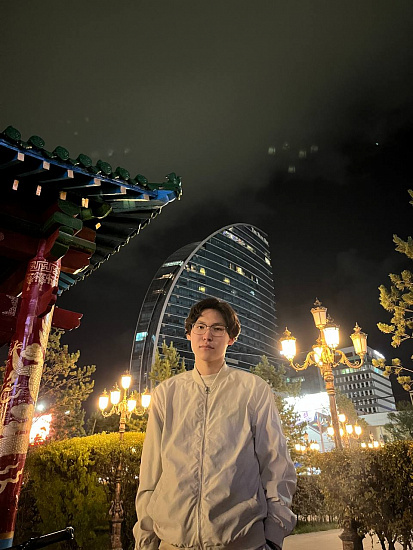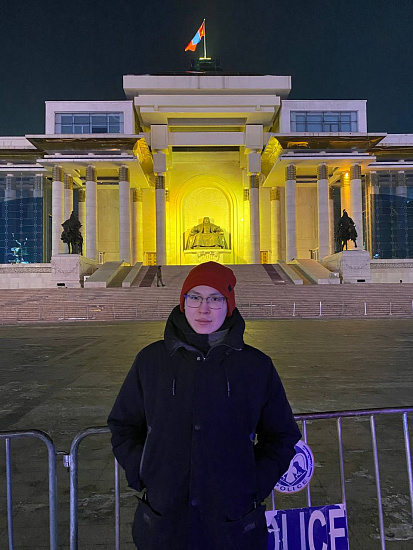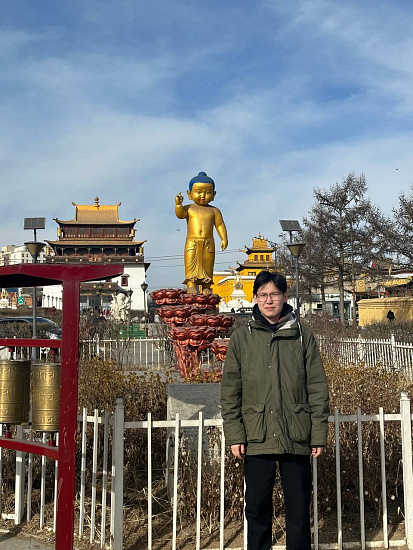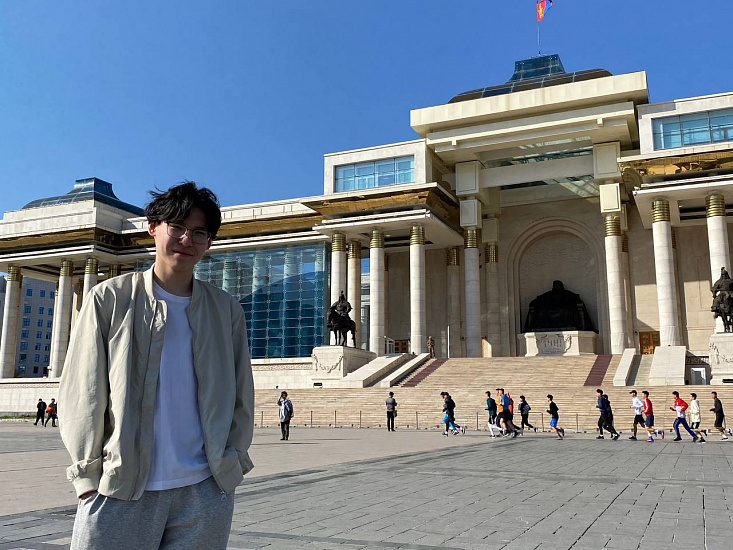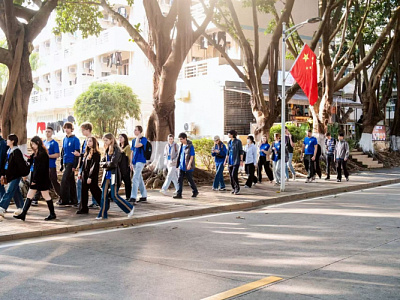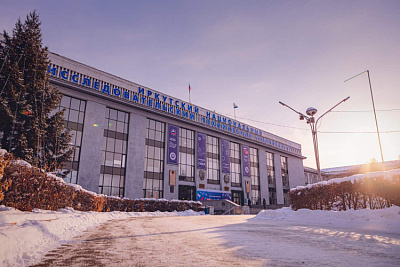INRTU student Maxim Imideev shares his impressions from the internship in the University of Finance and Economics (Mongolia)
Maxim Imideev, a student of the INRTU School of Power Engineering, had an internship at the University of Finance and Economics (UFE, Ulanbataar, Mongolia). He was enhancing his knowledge in the field of electrical engineering.
Maxim Imideev, a student of the INRTU School of Power Engineering, had an internship at the University of Finance and Economics (UFE, Ulanbataar, Mongolia). He was enhancing his knowledge in the field of electrical engineering.
UFE, founded as the School of Customs Officers 100 years ago, is one of the oldest universities in Mongolia. The university is located in the center of the capital and trains specialists in mathematics, economics, IT-technologies. The beginning of cooperation between INRTU and UFE was marked by signing a memorandum of understanding in 2021. A double degree program “Informatics and Computer Science” is applied between the two universities.
Maxim Imideev is a student of the School of Power Engineering, majoring in Electrical Engineering. At UFE he chose a similar specialty for inclusive education in the spring semester.
According to Maxim, the education system in Mongolia is different fr om the Russian one and more like the American one. For example, the UFE has a credit hour system. This is a credit hour or a conditional unit that denotes a student's weekly academic load. It implies work with a professor (supervisor) and independent studies. GPA, i.e. grade point average, is also essential in a Mongolian university.
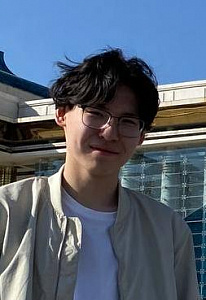
“Students themselves choose the disciplines they wish to study in a particular semester. They are also allowed to choose the professor, the appropriate day of the week and time to attend a particular class. Since I came under the inclusive study program, I didn't have such an opportunity. However, I had an individual plan, which I made in Russia before applying for the internship,” Maxim explained.
Maxim studied in English. He considers the internship useful, as in five months he successfully completed several key projects in which he participated together with Mongolian students and professors. Maxim Imideev admits that he deepened his academic knowledge of electrical engineering and learned new research methods.
“I attended lectures and seminars, along with my classmates I did homework, lab work and took exams in some subjects. It was very interesting to listen to the lectures of Mongolian professors. You can see at once that they are qualified specialists who are highly qualified in their subject,” the student emphasizes.
He also speaks well of life in the dormitory. The clean and cozy building is just a three-minute walk from the university. He was placed in a room with a Mongolian peer. They quickly found a common language, as they both speak English well.
In his free time, Maxim managed to travel around the country. He went to the town of Darkhan, known as the industrial center of Mongolia. He also visited the Stake Museum, wh ere a giant monument to Genghis Khan has been installed.
“The trip broadened my intellectual horizons and improved my intercultural communication skills. Living in a different cultural environment, getting acquainted with new social norms and overcoming language barriers made me more open and responsive,” Maxim wrote in his review on the INRTU website.
Also in the review he pointed out the financial expenses in Mongolia. Thus, a round trip to Mongolia cost him about $300. He spent about $200 a month on food. Monthly rent for a dormitory near the university cost $40. Read more about Maxim's expenses and tips for adapting to Mongolia in his review.
